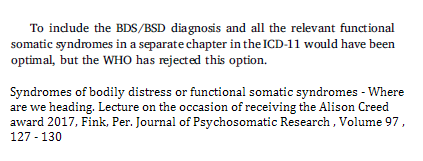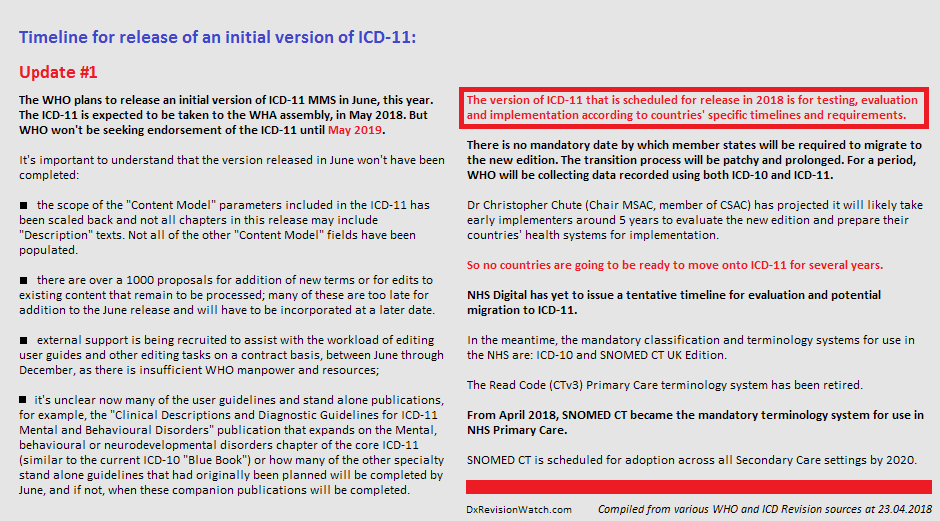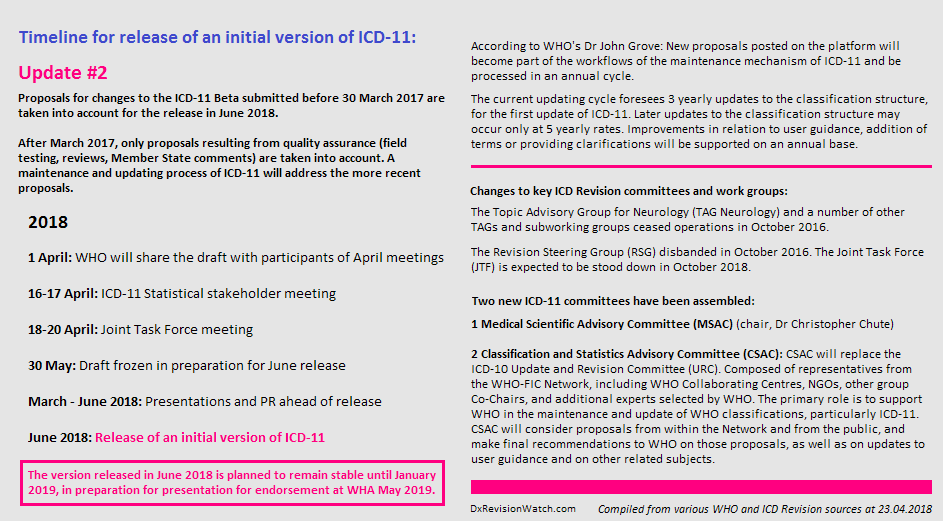A POCKET GUIDE TO IAPT
What is IAPT?
IAPT is the ‘Improving Access to Psychological Therapies’ programme that has been, and continues to be rolled out across England by the NHS.
It is the ‘brainchild’ of two men, Richard Layard, a Labour Lord and economist, and David Clark, who is currently Professor and Chair of Experimental Psychology at Oxford. Clark previously held the Chair of Psychology at the IoP, KCL, from 2000 to 2011. He was rewarded for his 'services to Mental Health' with a CBE in the 2013 New Year Honours list, the same list that gave Simon Wessely his knighthood.
The idea with IAPT is that a sizeable proportion of the population is afflicted with mental health problems – principally anxiety and depression, but of course other issues too. By allowing everyone access to psychological therapies all these people can be made happier, more positive, more productive in their work, and healthier, so to treat as many people as possible with psychological therapies will boost the economy and reduce health expenditure. People are not so much miserable because their circumstances are miserable, rather they’re miserable because of the way that they view themselves and the world. Change that and everything will be sorted, yay!
They wrote a book about this – ‘Thrive: The Power of Psychological Therapy’ , which was promoted in 2014
https://www.youtube.com/watch?v=a9eHyZmcLCk and their model was actively marketed to politicians of all parties in readiness for the 2015 General Election to try to ensure that they were all on board with the IAPT programme.
What’s the Problem?
Now, there’s perhaps nothing wrong with the idea of providing psychological therapies for free on the NHS to those who feel they may be helpful, but where IAPT starts to fall apart and become dangerous is that they have convinced Government that implementing IAPT will lead to savings across the board, help to cut the NHS budget, boost productivity, get people off benefits and back into work, and keep people in work. It has been heavily criticized by some psychologists (such as Oliver James
https://www.youtube.com/watch?v=lTgnzee3vFA ) and therapists for a manualized approach to therapy, a one size fits all that tends to favour CBT above other therapies, and not tailored to the individual needs of the patients. It has also been criticized regarding the role of ‘Employment Advisors’ in the IAPT programme, with fears of sick people being forced into work under threat of benefit sanctions -
https://www.disabledgo.com/blog/2017/12/improving-lives-fears-over-strategys-unacceptable-work-and-health-links/#.WtyZ0uSG-70 . The organization DPAC (Disabled People Against Cuts) has been strongly critical and regularly protests against IAPT
https://dpac.uk.net/2018/02/protest-against-iapt-therapies/ .
The specific NHS model is that the IAPT programme will pay for itself within the NHS budget because if patients with Long Term Conditions (LTC) and Medically Unexplained Symptoms (MUS) can access the therapies then they will require less physical health services including investigations and outpatient appointments……well that’s the theory. The billions of pounds in savings from these two groups will then pay for the whole programme, including tens of thousands of low intensity therapists or ‘Psychological Wellbeing Practitioners’ (PWPs) - relatively low paid graduates who have received a total of 45 days training for the job and who are often under an immense amount of stress and pressure -
https://www.theguardian.com/healthcare-network/2016/feb/17/were-not-surprised-half-our-psychologist-colleagues-are-depressed . If savings aren’t made from these two groups – LTC and MUS – then the project will have failed to deliver on its promise to Government. So the pressure is on for it to succeed. The first phase of the IAPT LTC/MUS roll-out has been evaluated, and unfortunately for them the healthcare costs after IAPT were more than they were before -
VLE – Frequently Asked Questions - UK Government Web Archive
How are they evaluating the IAPT service and healthcare costs?
When patients attend IAPT each session they fill out outcome questionnaires. All this is fed into a large database that is managed by NHS Digital; this data collection is apparently key to the success of the IAPT programme. (It is rather like the ME/CFS National Outcomes Database or ‘NOD’ but clearly much larger). All IAPT patients answer questionnaires on anxiety (GAD-7) and depression (PHQ-9) but ME/CFS patients are also given the Chalder Fatigue Questionnaire. Some of the data, including the ‘problem descriptor’ or code (ICD-10 F45.0 ‘somatization disorder’ for all MUS including ME patients), is added to the patient electronic record, but the bulk of the IAPT data collected is added to the IAPT Data Set apparently to monitor and improve the services and for use for health informatics and health research purposes. It is pseudonymized and can then be combined with pseudonymized data from individual’s primary and secondary care record to arrive at costings of healthcare for each individual before and after IAPT treatment. Nice. (And talking of NICE, the information from the IAPT database could well be used to show NICE that CBT and GET work for ME/CFS patients -
https://onlinelibrary.wiley.com/doi/full/10.1002/capr.12141 )
Why should ME patients be worried?
Well if you’re not worried by now then let’s spell it out. ME patients are categorized as having MUS in the IAPT programme which delivers them a ‘high intensity’ form of CBT together with GET. It is recommended that MUS patients follow a ‘matched care’ approach -
medically unexplained symptoms and psychological ... - NHS Networks (page 15 of 17) rather than the normal ‘stepped care’ approach that is characteristic of IAPT and that sees other patients starting at low intensity interventions and moving up to higher intensity interventions if they’re not effective. Special treatment for more difficult customers!
MUS patients are coded as having ‘somatization disorder’ ICD-10 F45.0 which should be quite a rare diagnosis (if indeed it exists at all). This coding is transferred to their electronic patient record so other healthcare professionals may have access to it and so, from the outset, regard them as somatizers. Doctors and other health professionals have been taught about MUS in workshops and conferences across the country. An emphasis has been placed on the cost of these patients to the NHS, as well as on the problems of ‘somatization’, false illness beliefs and health anxiety. The strong impression is given that these patients are a waste of NHS resources due to their neuroses, and this is bound to create stigma so that doctors do not give them the care and attention that their symptoms warrant or that they deserve. It would be foolish to think that this is in any way accidental. The more pressure that they are under to show that the IAPT model works, the more we should be worried that they will further stigmatize and limit biomedical care to MUS patients to ensure that physical care costs are reduced as a result of the IAPT initiative. Patients with Long Term Conditions should also be worried for similar reasons, as should the elderly who are being targeted with respect to MUS -
Hidden in plain sight - Age UK.
They are also seeking to make the IAPT model go global eg this presentation by Professor Clark in Sweden -
https://www.youtube.com/watch?v=qRqVJq6LVNo .
Does this have anything to do with Simon Wessely?
Although Wessely appears to have kept somewhat under the radar with this one, it is highly probable that he was involved in the development of the JCPMH ‘Guidance for Commissioners of Services for People with Medically Unexplained Symptoms’ that was jointly produced by the Royal College of Psychiatry and the RCGP and that steers NHS commissioners down the IAPT path for MUS services. Wessely used to be rather enthusiastic about IAPT -
https://www.youtube.com/watch?v=EJJOB8-xXuM (from 4 mins) - and called it “the greatest revolution in British mental health in fifty years” -
http://www.yhscn.nhs.uk/media/PDFs/mhdn/Mental%20Health/IAPT-LTC/1.%20YH%20IAPT-LTC%20Slides%20-%20October%202017.pdf , but more recently he has been critical of the concentration on ‘mental health awareness’ because apparently the system can’t cope -
https://www.bmj.com/content/358/bmj.j4305 . Of course, ‘mental health awareness’ is key to the IAPT model. It’s unlikely though that Wessely’s criticism will extend to challenging the treatment of patients with ME/CFS or ‘MUS’ any time soon.



